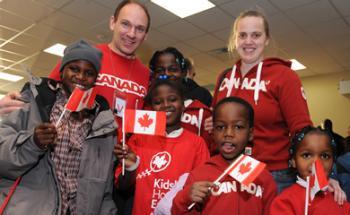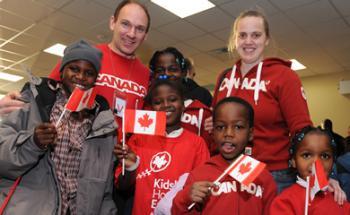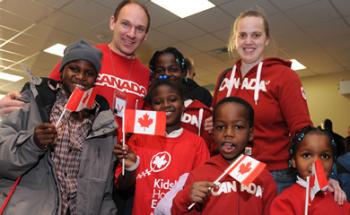Canada Welcomes More Haitian Orphans
Canadian adoptive parents welcomed the third group of Haitian children to Canada as focus in Haiti turns to reuniting families.

A third flight of Haitian children arrived at Ottawa International Airport on Jan. 30, 2010, part of the accelerated adoption operation to unite Canadian families with their Haitian adoptees who were already in the adoption process before the massive Jan. 12 earthquake struck the impoverished Caribbean nation. Photo courtesy of the Citizenship and Immigration Canada Web site
|Updated:





